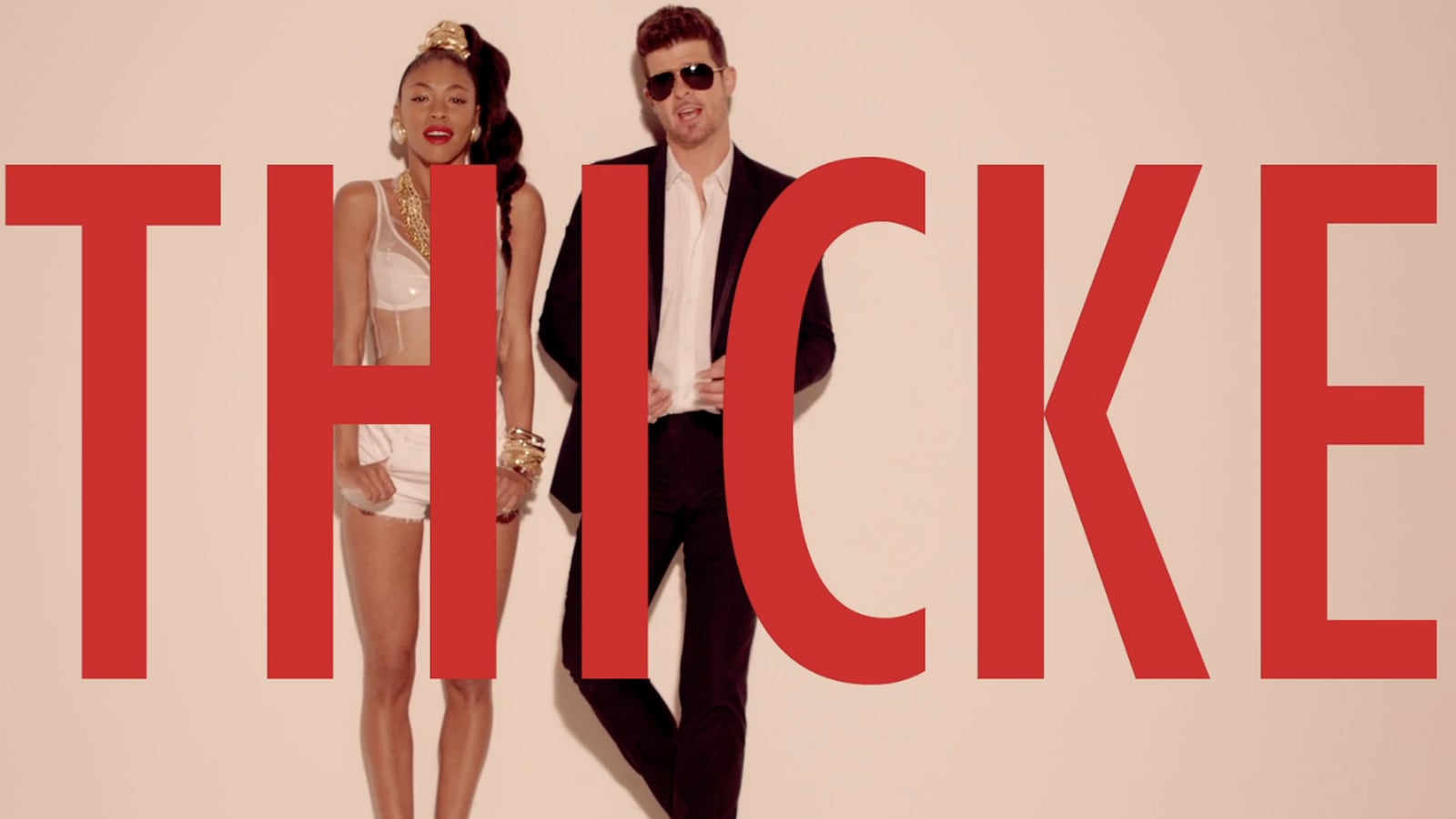Stephen Colbert called it the “Song of the Summer of the Century,” and every single person who turned on a radio since March has had it stuck in their head, voluntarily or not, at some point or another. But Robin Thicke’s song “Blurred Lines,” the wildly successful track from the wildly successful album of the same name, has been at the center of what seems like constant controversy.

The biggest controversy of late comes from a lawsuit filed by Marvin Gaye’s estate, alleging that the Thicke’s hit plagiarized from Gaye’s 1977 song “Got to Give It Up.” They are angered by Thicke’s apparent “Marvin Gaye fixation,” and want to be compensated for it.
But there was a whole summer of controversies that preceded this lawsuit. These are the biggest ones:
Does the song have “rapey” lyrics?
The Daily Beast’s Tricia Romano really kicked this controversy into high gear. Romano wrote an article entitled “‘Blurred Lines,’ Robin Thicke’s Summer Anthem, Is Kind of Rapey.” The sticking point for many was the constantly repeated lyric “I know you want it,” which many have found objectionable, although Slate’s Jennifer Lai comes at it from a different angle, “Robin Thicke’s ‘Blurred Lines’ Is Cocky, Yes. But Rapey? No.” It’s an interesting piece and brings up some pretty valid arguments against Romano and others, pointing out that there are several instances of lyrics “putting the ball in her court.” For his part, Robin Thicke said in an interview on the Today Show that he and T.I and Pharell, who are featured on the track with him, “were just trying to make a funny song, and sometimes the lyrics can get misconstrued when you’re just trying to put people on the dance floor and have a good time.”
Even so, this controversy is still in full swing, with articles written as recently as this week, with an article for University of Notre Dame’s The Observer entitled “Lines Are Not ‘Blurred,’” reiterating many of the points that others have made, albeit from the point of view of a college undergrad.
And speaking of colleges...
The song has been banned at 5 British universities
What do Kingston, Endinburgh, Leeds, Derby, and West Scotland universities have in common? They’ve all banned “Blurred Lines” from their campus bars. In each case, the reason has been the same: the belief that the song “excuses rape culture” and “is unacceptable.” Hollie O’Connor, president of the University of Derby Students' Union, told NBC News that “if [we] had 1,000 students in one of our bars and only 10 percent felt uncomfortable with the song being played then we’d have failed them." O’Connor also noted that “since banning the song she has received many emails of support and ‘not one which comes close to a complaint.’”
The racy music video
There are actually two versions of the “Blurred Lines” music video. Much like the song, one version of the video—which features a bunch of women in skimpy outfits dancing around Robin Thicke, T.I., and Pharrell—has been wildly successful: it has gotten 207 million views in the past 7 months. But while that one has raised a few eyebrows, it’s the “Unrated” version that really ruffled feathers. In it, those skimpy outfits all but disappear, and the women do their thing wearing only skin-colored thongs while massive hashtags periodically covering the screen for no discernable reason. In other words, it’s the kind of thing that was always going to cause controversy. As for the gorgeous Emily Ratajkowski, the most prominently featured model in the music video—she won Esquire’s “Woman of the Year” poll for 2013, beating out Jennifer Lawrence in the last round.
That VMAs performance
Who doesn’t remember the VMAs? Whoo boy. When Miley Cyrus came out, that was pretty weird in and of itself, but it was really Robin Thicke’s appearance that made the whole thing explode. Millions watched as a childhood hero sang Thicke’s song to him and then started grinding up against him. While Cyrus caught the brunt of the controversy, there was still some blowback against Thicke, who is married with children. His wife, however, really didn’t care about the whole thing. In an interview with Andy Cohen, she said, “Honestly, they rehearsed for three days beforehand, and I don't know how not to dance with someone having their booty in your … all my friends do it like that,’ she explained. ‘And I don't really know what the big deal is.’” While that won’t stop haters from hating, it puts a pretty big cap on the whole thing.
Stolen from Marvin Gaye?
The most recent controversy is the most interesting and could easily be the most damaging: Robin Thicke has been accused of stealing the “Blurred Lines” music from Marvin Gaye’s “Got to Give It Up.” But this is interesting at least in part because Robin Thicke, Pharrell Williams, and Clifford Harris Jr. sued Gaye’s estate back in August after some initial complaints were made. Their lawsuit was intended to grant them full rights to the song and stop Gaye’s estate from being able to sue them in the future, because they believed that their song was “starkly different” from Gaye’s. Obviously that didn’t happen. But it’s not just “Got to Give It Up” that was allegedly taken from; the lawsuit also claims that Thicke’s song “Love After War” ripped off Gaye’s “After the Dance” and that “Make U Love Me” is similar to Gaye’s “I Want You” (although that last song is not part of the lawsuit itself).
Is there any merit to it? No, not really. “Blurred Lines” and “Got to Give It Up” are undoubtedly similar, but no one who knew either song could actually confuse one for the other. “Blurred Lines” is an homage to songs like Gaye’s, evoking that style and possibly even that one song, but they’re certainly not the same. Comparatively, the “After the Dance” claim seems ludicrous. Right from the first few notes, it’s easy to understand where the earlier claims came from, even if their conclusions are off the mark, but “Love After War” and “After the Dance” are radically different songs, and any similarities are fleeting, and it is silly to think otherwise.





